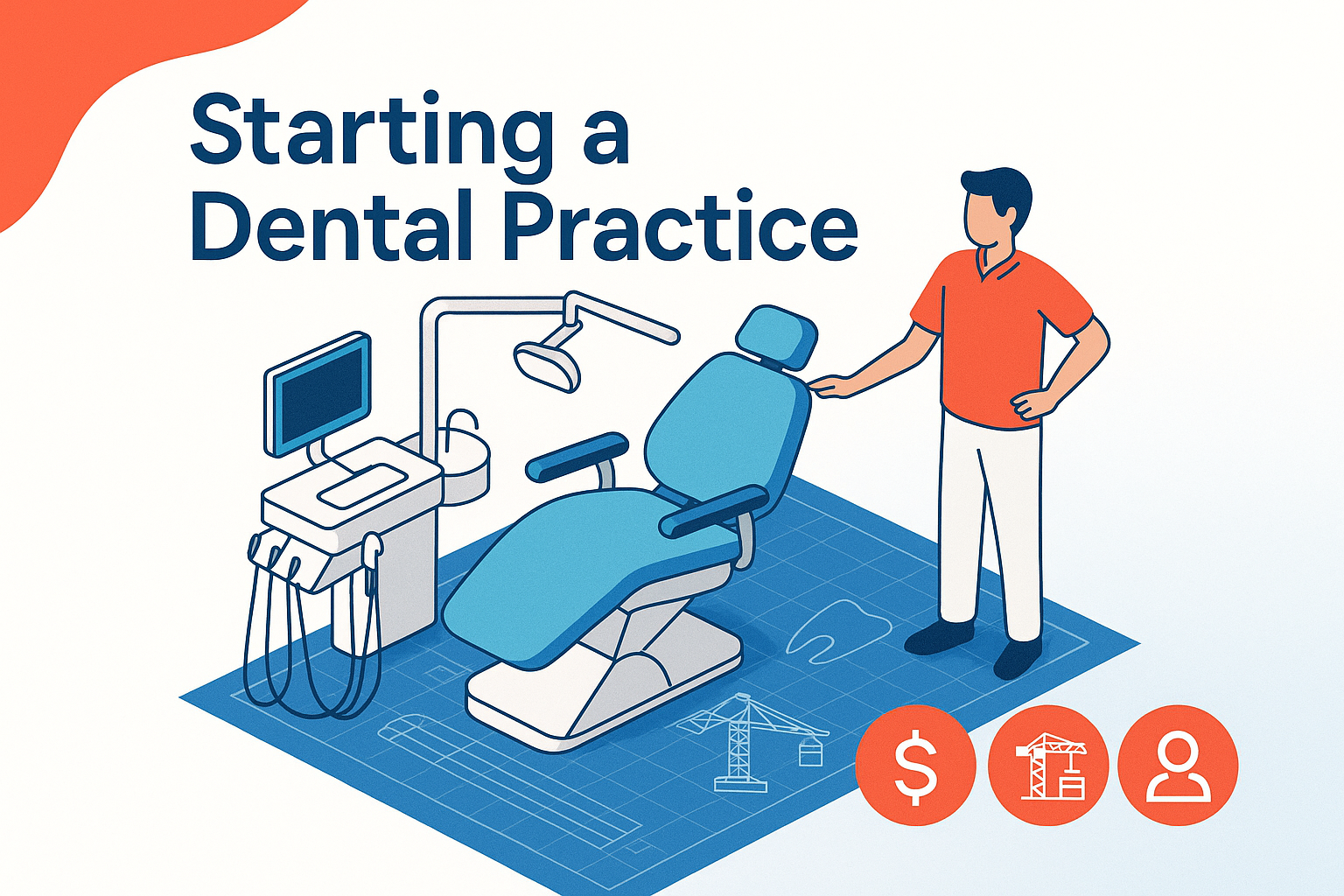Navigating the Challenges of a Dental Startup

Starting a dental practice in today’s competitive Canadian healthcare environment is no simple task. In metropolitan areas like Toronto and across the GTA, dental professionals must make foundational decisions that will shape the future of their clinics. One significant fork in the road lies between acquiring an existing dental office or building a practice from the ground up. In a recent podcast interview, Dr. Katie Mathis shared her personal journey, opting to forgo acquisition and instead tackle the challenges of a full-scale startup. Her insights offer invaluable guidance to any dentist weighing these two often-conflicted paths.
Red Flags to Watch For When Buying a Practice

The allure of acquiring a functioning practice—complete with patients, staff, and equipment—is appealing. However, Dr. Mathis warns that beneath the surface of many “established” practices lie red flags that are easy to overlook. These may include outdated dental instruments, inefficient workflows, or even toxic workplace culture. Especially in the high-demand Toronto dental scene, an inherited set of bad habits or ineffective systems can derail even the most eager new owner. Doing proper due diligence and looking beyond revenue reports is crucial.
The Fear of Startup Debt

Debt is often cited as the number one deterrent to starting a practice from scratch. Yet as Dr. Mathis points out, taking on measured startup debt can actually offer a path to full autonomy. New owners get to dictate everything—from layout and brand identity to the kind of handpieces and chairs they install. Control over systems, culture, and operational philosophy is a powerful payoff that can far outweigh the comfort of a supposedly “turnkey” acquisition. When carefully planned and partnered with reliable vendors for essentials like consumables, a startup investment is also a future-focused bet on success.
Avoiding the "Fixer-Upper" Trap

Acquiring a practice often reveals itself as a fixer-upper project—sometimes emotionally and operationally taxing. Dentists who choose this route might spend years repairing broken systems or winning back staff trust. Instead, as Dr. Mathis notes, starting clean with purposefully selected dental equipment, software systems, and process designs allows clinicians to run things smoothly from day one. Managing a practice should be about growth, not cleaning up someone else’s mess, especially when servicing a high-expectation patient base in major hubs like Mississauga or Scarborough.
Key Considerations Before You Decide

The decision to build or buy isn’t just financial; it’s deeply rooted in individual vision and values. Dr. Mathis advises that every prospective owner take time to visualize what they want patients to experience and how they want their teams to function. Do you need more flexibility over space and branding? Are you looking to develop a referral base with better technology and faster diagnostics? Access to progressive supplies from partners like EBIKO Dental can significantly influence that vision, making product availability a key conversation when planning your practice launch.
Financial and HR Planning as Growth Engines

Dental startups aren’t just about equipment and layout—they demand a sound financial structure and a people-first approach. Planning payroll timelines, investing in staff training tools, and choosing the right practice management software are just as pivotal as chairside ergonomics. Canadian dentists must also adhere to standards from regulatory bodies like the RCDSO and CDA, particularly around infection control and clinical documentation. Choosing supplier partners that offer CSA-compliant sterilizers or regulator-approved materials makes compliance-building easier and faster.
Strategizing Location, Construction, and Permits

In cities like Toronto, real estate and zoning regulations introduce another layer of complexity. Whether you’re retrofitting a commercial unit in Vaughan or breaking ground on a standalone clinic in Richmond Hill, aligning your construction timeline with licensing and permitting windows is critical. Dr. Mathis stresses coordinating early with contractors specialized in dental environments, ensuring layout accommodates unit water lines, air compressors, and HVAC specifications suited for enclosed dental rooms. Suppliers offering installation-ready compressors and chairs reduce the coordination overhead dramatically.
Final Thoughts: Insights that Inspire Longevity

Starting your dental clinic is more than a career decision—it's an entrepreneurial and human-centered pursuit. With voices like Dr. Mathis highlighting the ups and downs, dentists equipped with clear planning, reliable partners, and access to high-quality suppliers like EBIKO Dental are poised to succeed. With comprehensive solutions in disposable supplies, tech-friendly tools, and scalable essentials, EBIKO empowers startup clinics to launch strong and stay efficient.
To dive deeper into Dr. Mathis’ experience, you can listen to the full podcast episode here. It’s a smart next step for anyone mapping their future in dentistry.

